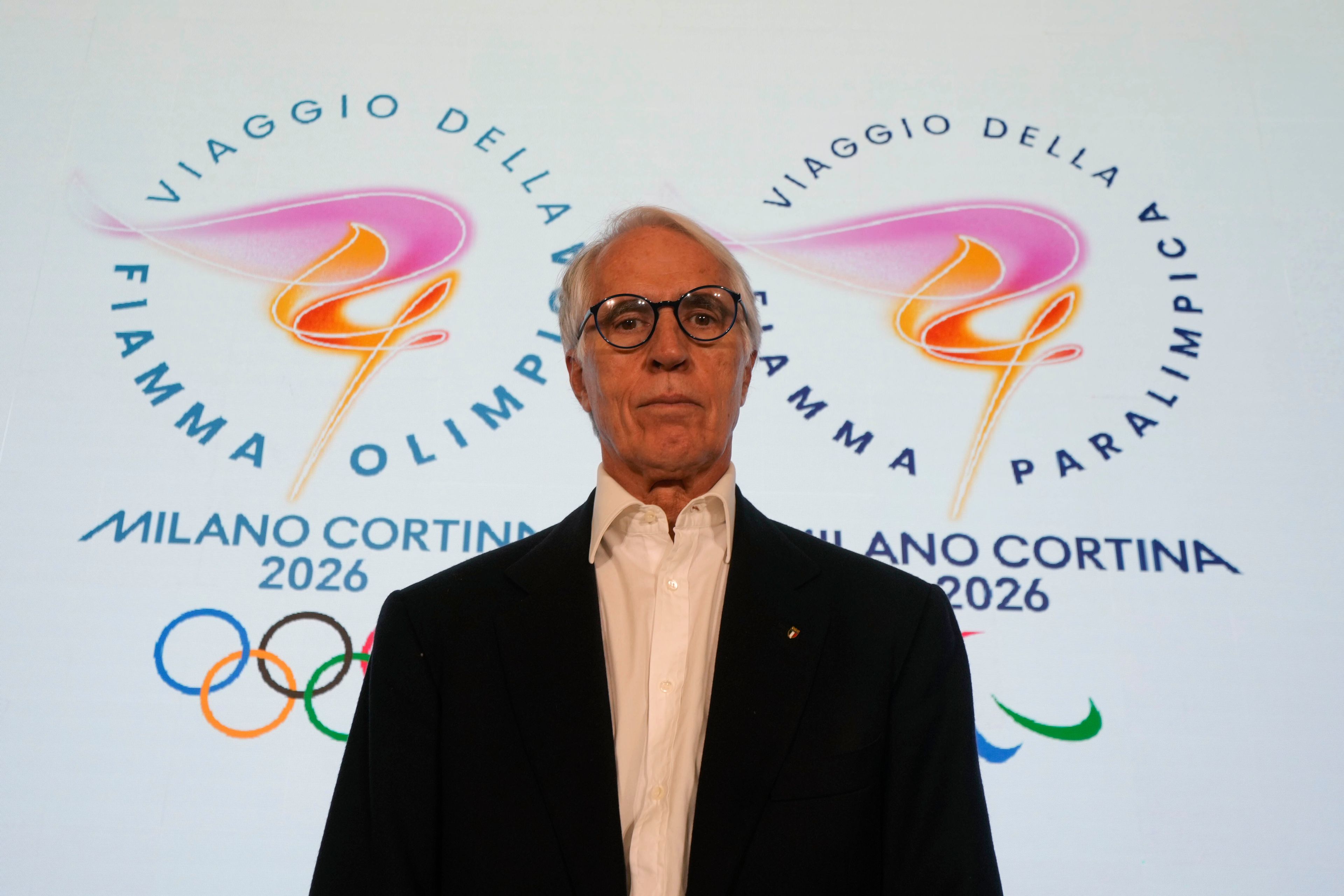American Masai Russell leads stacked field of hurdlers chasing Camacho-Quinn's Olympic title
SAINT-DENIS, France (AP) — After making it to the Paris Olympics, 100-meter hurdler Masai Russell
SAINT-DENIS, France (AP) — After making it to the Paris Olympics, 100-meter hurdler Masai Russell treated herself to a new black Mercedes.
Imagine the reward should the American star bring home gold. Imagine the social media content, too.
When she's not leaping over hurdles, Russell is a world-class social influencer with around a million followers throughout her platforms. She posts videos about hurdles, hair, health, training and dance moves. Some of her posts can get up to 60,000 “likes” from fans.
“My boyfriend is like, ‘That could fill up a whole stadium,’” said Russell, who begins the first round on Wednesday with the final on Saturday. ”When you put it that way, it’s kind of scary.”
The 24-year-old from Maryland was all set to go to Tennessee before following a coach to the University of Kentucky. The Wildcats are almost synonymous with hurdles, given Kentucky has produced the likes of Sydney McLaughlin-Levrone, reigning Olympic champion Jasmine Camacho-Quinn of Puerto Rico and silver medalist Kendra Harrison.
Russell has the top time (12.25 seconds) in the world this season in a crowded Olympic field that includes Camacho-Quinn and Jamaica's Danielle Williams, who won at world championships last summer in Budapest.
“I guess I don’t really think about (having the top time) because I know there’s still more in the tank,” Russell said. “I feel like once you start thinking that you have to do something more than what you’ve already done, that’s when bad things can (happen). ... If it’s meant for me to win the gold, it’s going to happen.”
Russell used to be a 400 hurdler, like McLaughlin-Levrone, before switching over for good in college.
“The 400 hurdles is no joke. It’s no joke to train for, it's no joke to compete in,” Russell said. “I’m glad the 100 hurdles picked me. I’ve definitely grown a love for the 100 hurdles.”
Could Gail Devers have won 3 gold medals?
Hall of Fame sprinter Gail Devers will certainly be watching the race. The 100 hurdles is near to her because the 1988 race was a medal that could’ve been.
At the Summer Games in South Korea, Devers struggled with her eyesight in the hurdles races. She didn’t make it to the final.
Years later, Devers learned she had Graves disease, an autoimmune disease affecting the thyroid gland. She would go on to win two 100-meter Olympic gold medals in 1992 and ’96.
“Who knows what could have happened, if we’re playing the what-if game,” Devers said of the 1988 hurdles race. “Just having my life put on hold for three years when I should have been on the top of my game.”
She's been dealing with Graves’ disease and symptoms of thyroid eye disease for more than three decades.
“I am doing great,” Devers said.
The American team is stacked with world-class hurdlers
Just to make the U.S. team in the event takes an Olympic-esque effort. Russell, Alaysha Johnson and recent NCAA champion Grace Stark earned spots by all running 12.31 seconds or faster. Nia Ali, who was part of the American 100 hurdles sweep at the 2016 Rio de Janeiro Games, ran 12.37 seconds and finished fourth. That time would’ve tied for gold in Tokyo. Tonea Marshall (12.38) and Harrison (12.39) also didn't make it.
“They would have made the (Olympic) final for sure," Devers said. "So we left at least two-to-three people at home who could have made that final.”
Cyréna Samba-Mayela is France's best hurdler
France’s Cyréna Samba-Mayela lists her talents as playing piano, guitar, painting and drawing. Oh, and hurdling, too.
Samba-Mayela won the European Championships in Rome last month.
Don't forget world-record holder Tobi Amusan of Nigeria
The field includes world-record holder Tobi Amusan of Nigeria (12.12 seconds) and the Bahamas' Devynne Charlton, who's also a training partner of Russell.
“We have a really great dynamic,” Russell said.
___
AP Summer Olympics: https://apnews.com/hub/2024-paris-olympic-games
Connect with the Southeast Missourian Newsroom:
For corrections to this story or other insights for the editor, click here. To submit a letter to the editor, click here. To learn about the Southeast Missourian’s AI Policy, click here.










